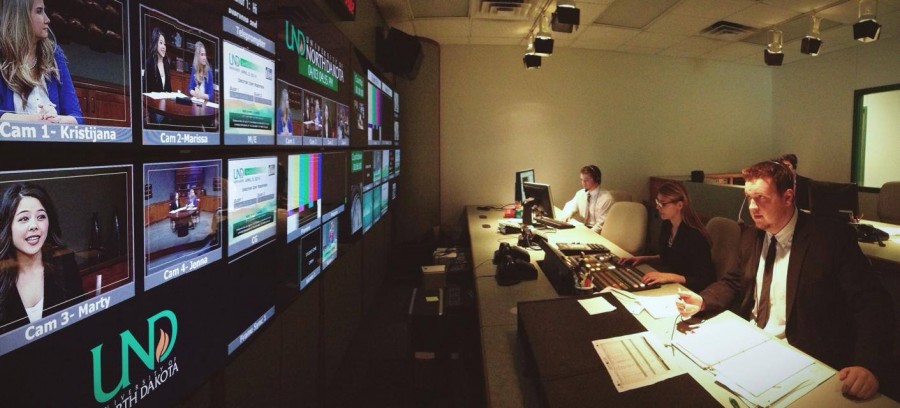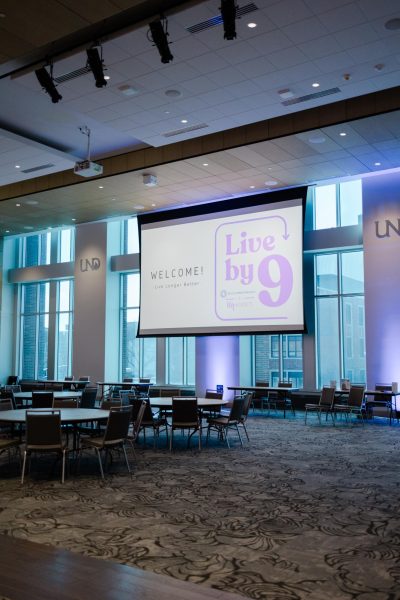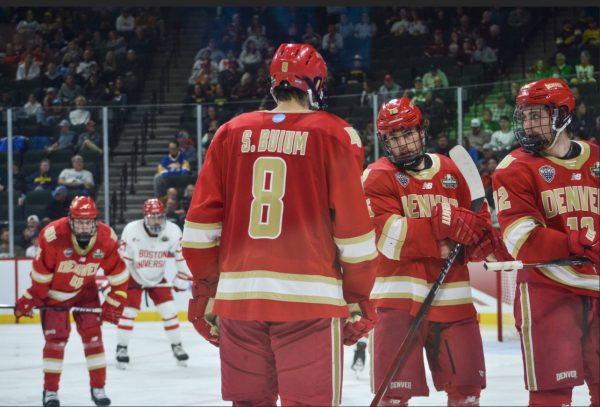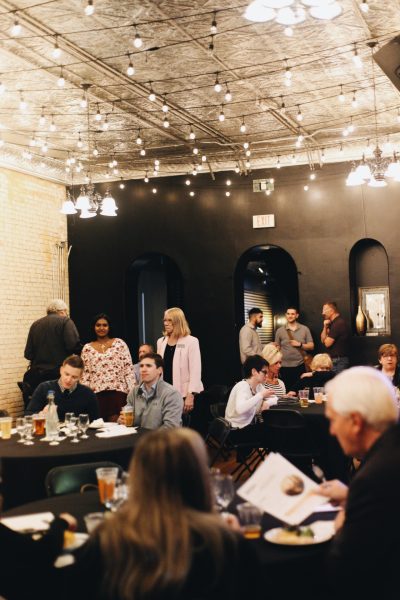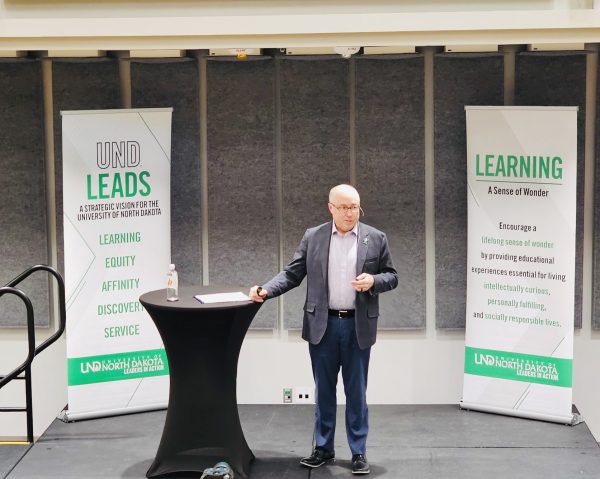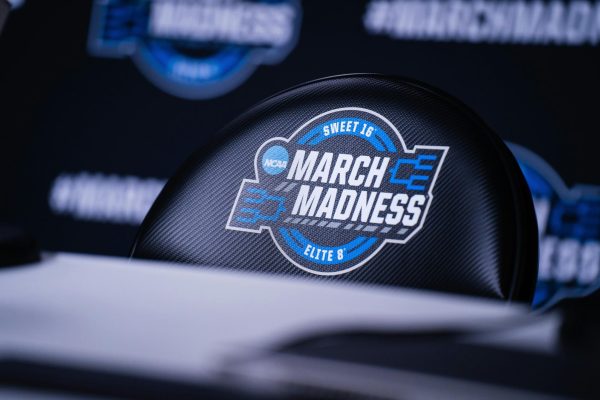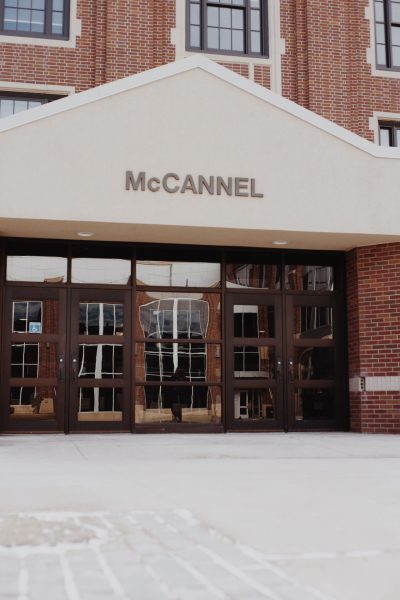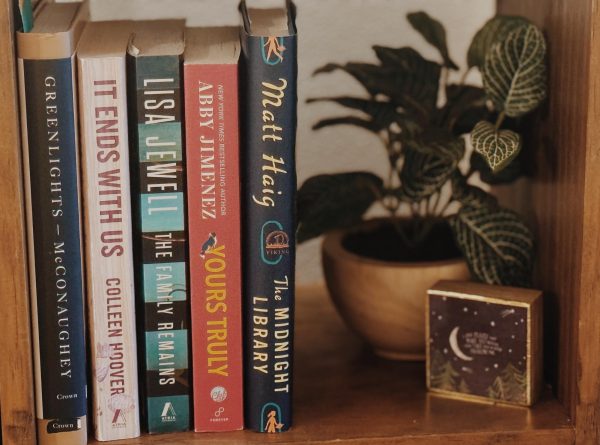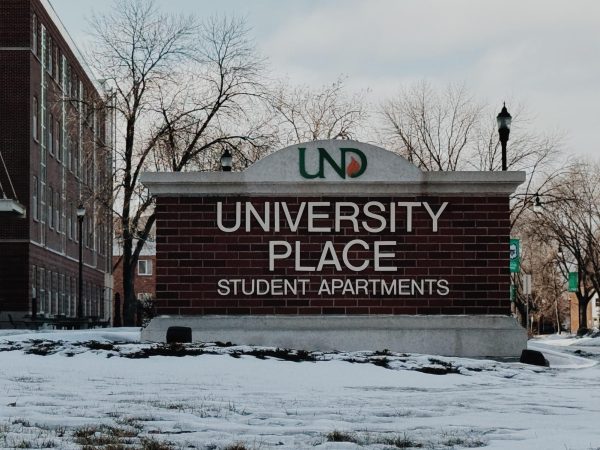Studio One was integral to my college experience
Alex Stadnik, Tasha Olson and Tyler Schaefer directed Studio One’s live broadcast two years ago. Photo courtesy of Studio One’s Facebook page
The purpose of a college education is to enable a student to go out and excel in the professional world. Studio One has exemplified that and done much more than simply put a camera in a student’s hands.
While there is reason to restructure, it is an absolute mistake and disservice to the communications department and students to cut Studio One.
Studio One is the reason I am still at UND today.
When I started at the school four years ago, I had no concept of what I wanted to do with my future. While I was enjoying college life, I wanted nothing more than to pack up and leave the school for another university.
But then, in my second semester, I applied to the program to be a be a video-photographer.
Initially, I did not get into Studio One.
A few weeks later, I got a call from Studio One mentor Monte Koshel telling me someone had dropped out and there was a spot open for me. I played it cool on the phone and accepted the position, but I was ecstatic.
From there, I spent the rest of my semester getting to know the people and the studio I would spend the next two years with.
During my time at the studio, I moved through the ranks from video journalist to the director of the program and a student leader.
To assume that this is just an outdated internship program for a select group of students is to completely misjudge what happens inside the television studio.
It was at Studio One where I truly learned how to function in a professional setting.
In order to succeed in getting our stories done, we needed to work with other colleges to shoot, edit and finish our work on time.
Just like in the real world, deadlines were not just a suggestion, they were the law. If your story was going to be on the next show, you had to make sure that everything from the voice over to the script was complete a day before.
Studio One demanded excellence from us and it showed in our work. For 28 years, the interns at Studio One earned 709 awards on both the regional and national level.
Even for those who are not planning on pursuing a career in journalism, including myself, Studio One is an invaluable experience.
While there is reason to restructure, it is an absolute mistake and disservice to the communications department and students to cut Studio One.
— Alex Stadnik
I got to use professional quality equipment such as Final Cut Pro, Adobe Premiere and broadcast-grade cameras that enhanced my resume as I plan on a career in public relations. This program is essential to the UND communications department.
Getting a degree in communications is a double-edged sword. On one end, communications is so broad and it allows for opportunities in a multitude of different occupations. On the other hand, if students don’t distinguish themselves from the rest of the pack, it can be quite difficult to find a job.
Studio One was one of the only ways communication students could differentiate themselves. There are minimal opportunities for internships in the communications department as there is, and to cut one of the most integral programs cheapens a student’s college education.
Granted, in a time of budget cuts, every program must be open to the idea of change, and Studio One is no different.
One of the main critiques of the program is that it is to expensive for so few students to participate in. The program can only take in around 50 interns per semester, and the turnover rate isn’t that high because students can stay as long as they are UND students. Opening up the program to more students might make the cost of operations easier to swallow for UND’s administration.
But regardless of its problems, Studio One is an integral program for communication students and does not deserve to be cut. While making choices on what to cut is never easy, the choice to cut Studio One shows that the administration either has not looked close enough at the program or simply only cares about the bottom line and not about preparing students for life in the real world.
Alex Stadnik is the sports editor for The Dakota Student. He can be reached at [email protected]


